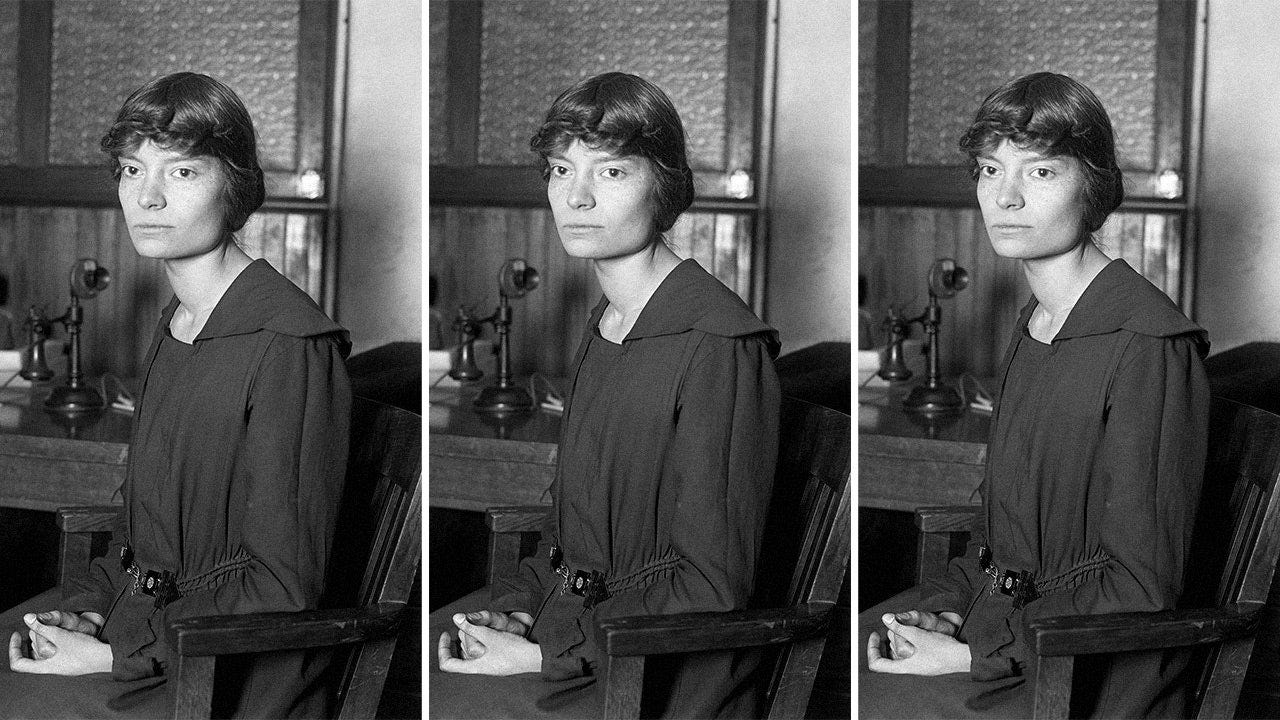
Today is the feast day of Dorothy Day. You won't find it in the Roman calendar of saints (yet), but feast days are not always born in Rome.
One thing that I have been pondering as I read Dorothy is how ordinary she is. How like all the young 20-something and 30-something women I know she is.
That may surprise you, from what little you may have heard about her.
Her biographers (mostly men) like to highlight the contrast between her conversion at the age of 30 and her life afterward. But Dorothy herself and those who knew her say there wasn't much difference. She's a pretty integrated person and the Catholic Worker was born of her constant integration of the different parts of herself into a whole. Who does not become more unhesitatingly themselves as they approach 35? Unwilling to hide quiet, private dimensions of themselves and suppressed longings in the secret recesses of their heart?
It's always fun to highlight a great contrast in order for storytelling—so men love to write how profligate she was. "She used to have sex and then she stopped!" sort of conversion story. But as I look at my own life and the lives of my friends, Dorothy looks pretty much just like us. A failed marriage she never talked about; a man or two who destroys your heart and your better judgment; an abortion you didn't really want but don't see a way out of; and a faithful, constant, boneheaded man who can't make his peace with the faith that is so obvious to you.
I live in a highly Catholic corner of the world, and even I can name ten women I know and love who can swap stories with Dorothy re: all of the above on the other side of the pearly gates. So I think sometimes there's just a great (willful) misunderstanding about what it means to be a woman or to be a human or to just be alive and willing to give the whole project of loving another person a shot. Which Dorothy did.
I do credit Jeff Korgan, who oversaw the final five years of the diocesan phase of her cause for canonization in New York City, with first planting this seed in my head, pace all the biographies I was reading. He scoffed at those who called her promiscuous or profligate or those who said she was so different pre-conversion or post. She was just a regular woman who dated people, he said (I paraphrase). If she's promiscuous, so is everybody.
A sound thesis. It's one of those pieces of wisdom that comes from someone who had spent a lot of time with her words about herself, not words about her.
Her life does get a bit extraordinary, but not so much more than the life she was already living as a journalist very committed to the poor and to making life better for working-class readers. She meets a man who helps her make sense of her Catholicism the way no priest in confession, nun doling out catechism, or high Mass could do. Think of your favorite teacher—the teacher who speaks your language and who helps you see the world more clearly than anyone else and helps you see your place in it—that's Peter Maurin.
Here's where Dorothy's ordinary: she is a single mother raising a child who is living with family and friends in various roommate situations (much like most young, poor people in New York always have and always will) who starts a newspaper because that's what she knows how to do, and she writes about labor, unions, strikes, justice, because that's what she cares about.
Here's what makes Dorothy extraordinary: she listens to the Gospel and takes it seriously, the way we don't when we pass by someone begging for a dollar or a cup of coffee. In that moment, we don't believe that that person is Christ. We don't believe, at the end of time, the reality that that person was Christ and we walked by him ("lord when did we see you?") will be revealed. We don't believe the Gospel.
And we don't because our hearts are too small and too hard. It takes a heart softened by extraordinary love to love each person as Christ, the way we are called to love in order to call ourselves Christians and not make a mockery of that name. And that is what makes someone a saint: not because they are a superhero. We love superheroes, but saints are not Marvel movies. Saints are ordinary. We want them to be those who have achieved much, but they are not.
They are not. They are those that have loved much. It is their love, not their CV, that is extraordinary. It is inexhaustible, it burns deep inside them and cannot be quenched, always pushing them to love more.
And so that's what I think about today, and it's a more manageable—yet daunting—way of seeing a saint. That they are ordinary—they could be your friend or neighbor— they ask the same questions and wring their hands over the same intractable problems all around them. But it is their love and their willingness to let the truth be true in their lives that make them extraordinary.
"Always there is something new, always there is something to learn about how to progress in the love of God and one's neighbor. How can we ever give up thinking and longing for love, talking of it, preparing ourselves for it, reading of it, studying about it? It is really a great faith in love that never dies. We hope against hope, as Abrahama did in the promise, and we know with something that bears witness in us that this love is true, and that the promise is there."
—Dorothy Day, On Pilgrimage, Summer 1948




